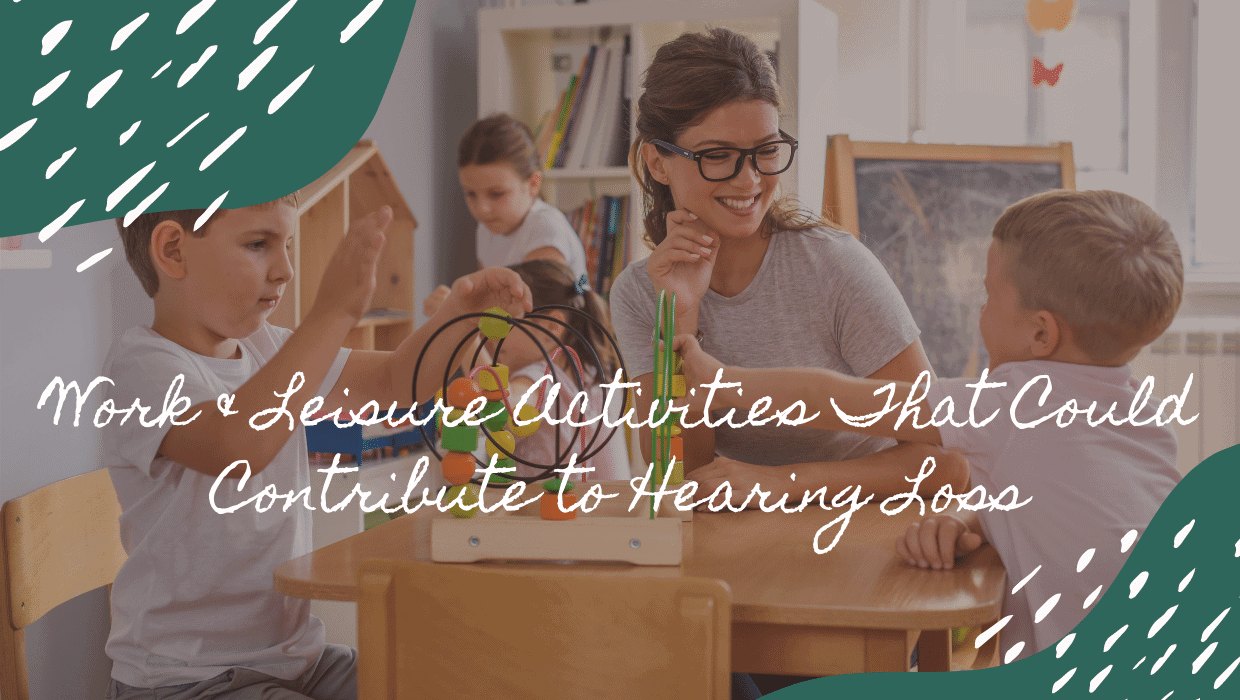We are constantly surrounded by noise. You may wake up to an alarm clock, commute to work, listen to music, meet friends for dinner etc. You may think that the sounds you are always absorbing are not particularly dangerous. But there are everyday activities and work environments that are actually exposing you to high levels of sound that could potentially harm your hearing and contribute to noise induced hearing loss.
Noise Induced Hearing Loss
There are various factors that can contribute to the development of hearing loss including: genetic history, aging, existing medical conditions, and environmental exposure to loud noise. One time or consistent exposure to loud noise can damage integral parts of the auditory system. The auditory system refers to the way we hear and involves:
- Outer Ear: consists of the most visible part of the ear, ear canal, and ear drum which separates the outer and middle ear.
- Middle Ear: houses the ossicles which are three connected bones.
- Inner Ear: is composed of the cochlea – filled with thousands of hair cells and fluid.
The outer ear absorbs sound from the environment which travels down the ear canal and lands on the ear canal causing it to vibrate. This triggers the ossicles which help amplify and push the soundwaves further into the inner ear, activating the cochlea. The movement of the hair cells and fluid in the inner ear help translate the soundwaves into electrical signals that are then sent to the brain. The brain is then able to process and make meaning of these signals which is how we are able to understand what we hear.
Noise induced hearing loss results from damage done to the hair cells in the inner ear. Soundwaves move and bend hair cells which are flexible like blades of grass. The more intense the soundwaves, the greater the movement. Hair cells need to be able to rest and recover but if loud noise is consistently absorbed, this overworks these cells and causes them to lose sensitivity. This kind of damage is permanent because hair cells do not regenerate and there isn’t a way to replenish.
Work & Leisure Activities
Sound is measured in decibels (dB) and noise above 85dB is potentially harmful for hearing health. There are daily activities and work environments that we navigate which can easily exceed 85dB including the following:
- Household Appliances: leisure activities around the house like cooking and building projects can easily expose you to loud noise.
- hair dryer, blender: 80-90dB
- lawn mower, vacuum: 90dB
- hand drill: 100dB
- Work environments: exposure to loud noise at work is a common cause of noise induced hearing loss. Millions of people are actually exposed to dangerous levels of noise at work which can include: operating heavy machinery, working on construction sites, in arenas, airports, concert venues etc.
- Other Leisure Activities: such as concerts, watching a game in a sports arena, visiting a gun range etc. are activities that produce sound above 85dB. In fact, concerts and sports arenas are louder than 100dB.
- Listening to music: on personal devices can easily exceed 85dB.
It is important to practice safety measures and be proactive about your hearing health.
Tips to Protect Your Hearing
There are several ways you can reduce your risk of developing hearing loss including:
- Wear Protective Gear: such as earplugs, earmuffs, and headphones which decrease the amount of sound you absorb.
- Invest in Noise Cancelling Headphones: which reduce background noise, preventing you from having to increase the volume in louder settings.
- Maintain Low Volume: when using audio devices, maintain a normal volume. You can download an app to measure decibels if you are ever unsure!
- Take Listening Breaks: your ears need time to rest and recover so be sure to take listening breaks throughout the day!
- Get Hearing Tested: it is important to have your hearing assessed regularly. Hearing tests measure your hearing ability in both ears. This identifies any impairment and establishes your hearing needs. There are effective ways that hearing loss is treated, the most common treatment being hearing aids.
Prioritizing your hearing health is important to your overall wellbeing and quality of life! Contact us today to learn more.

